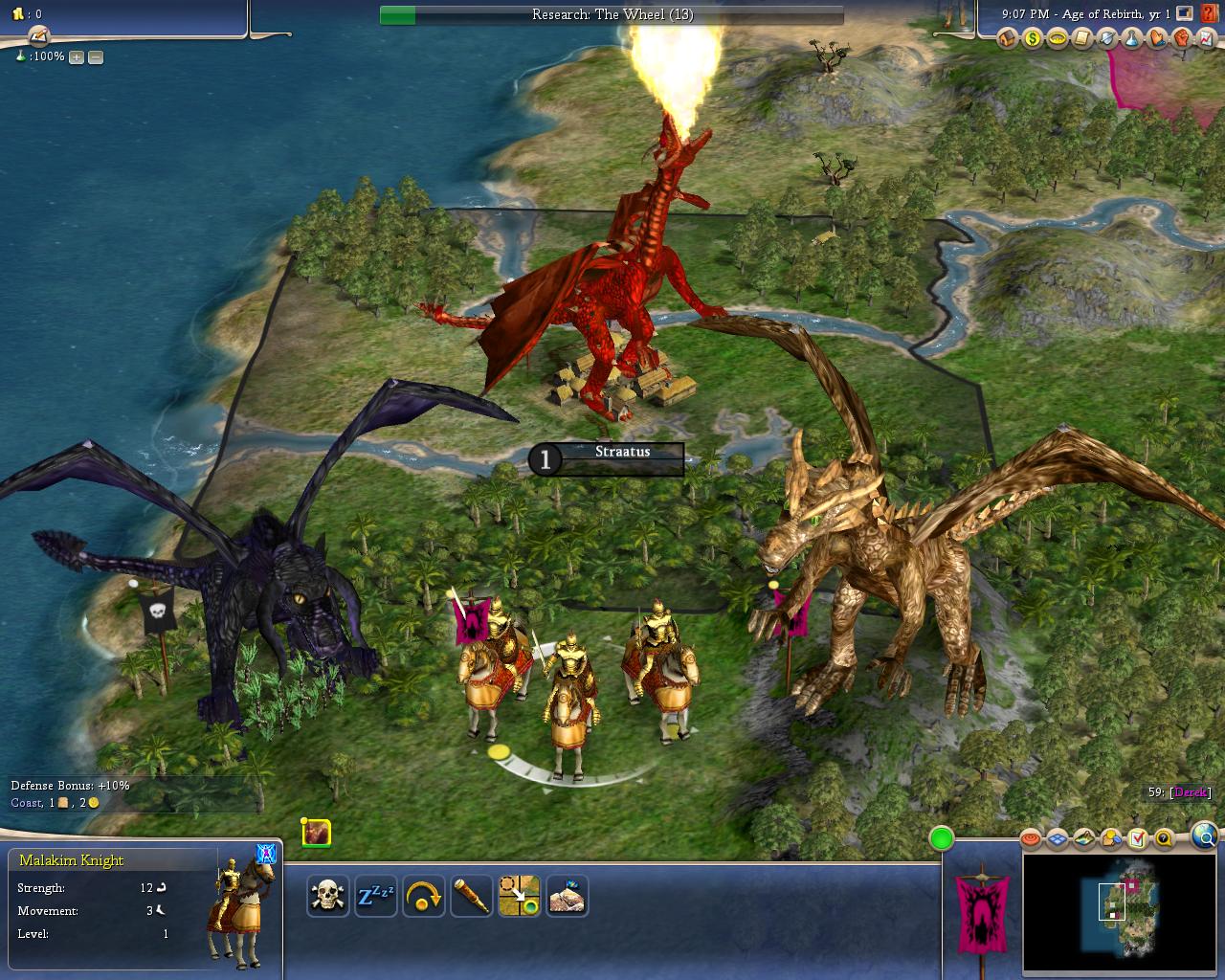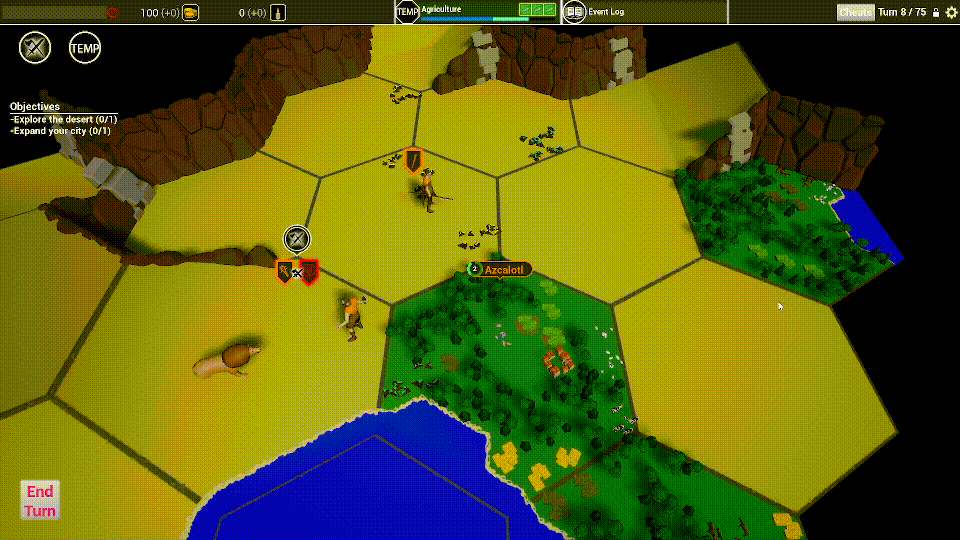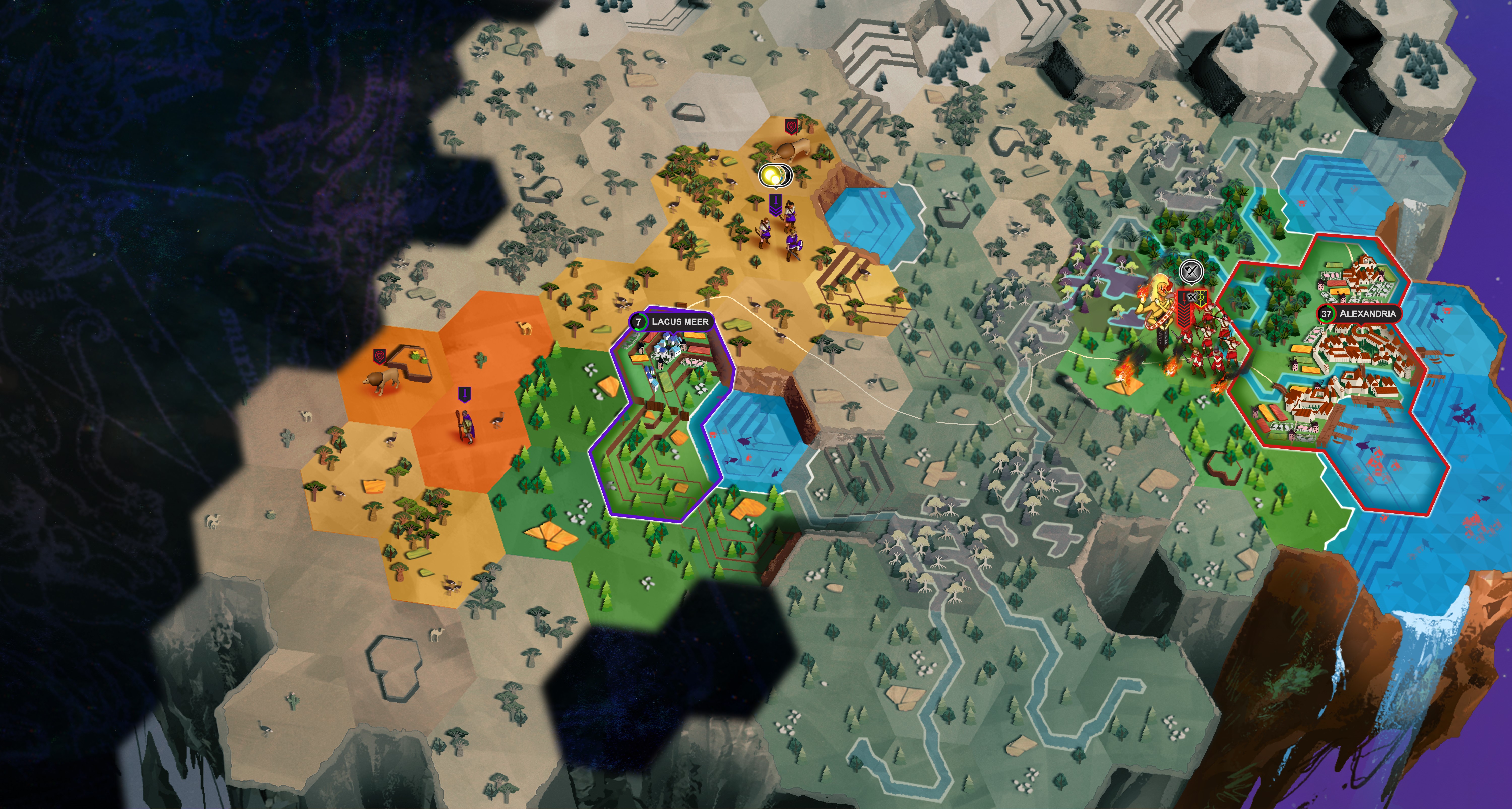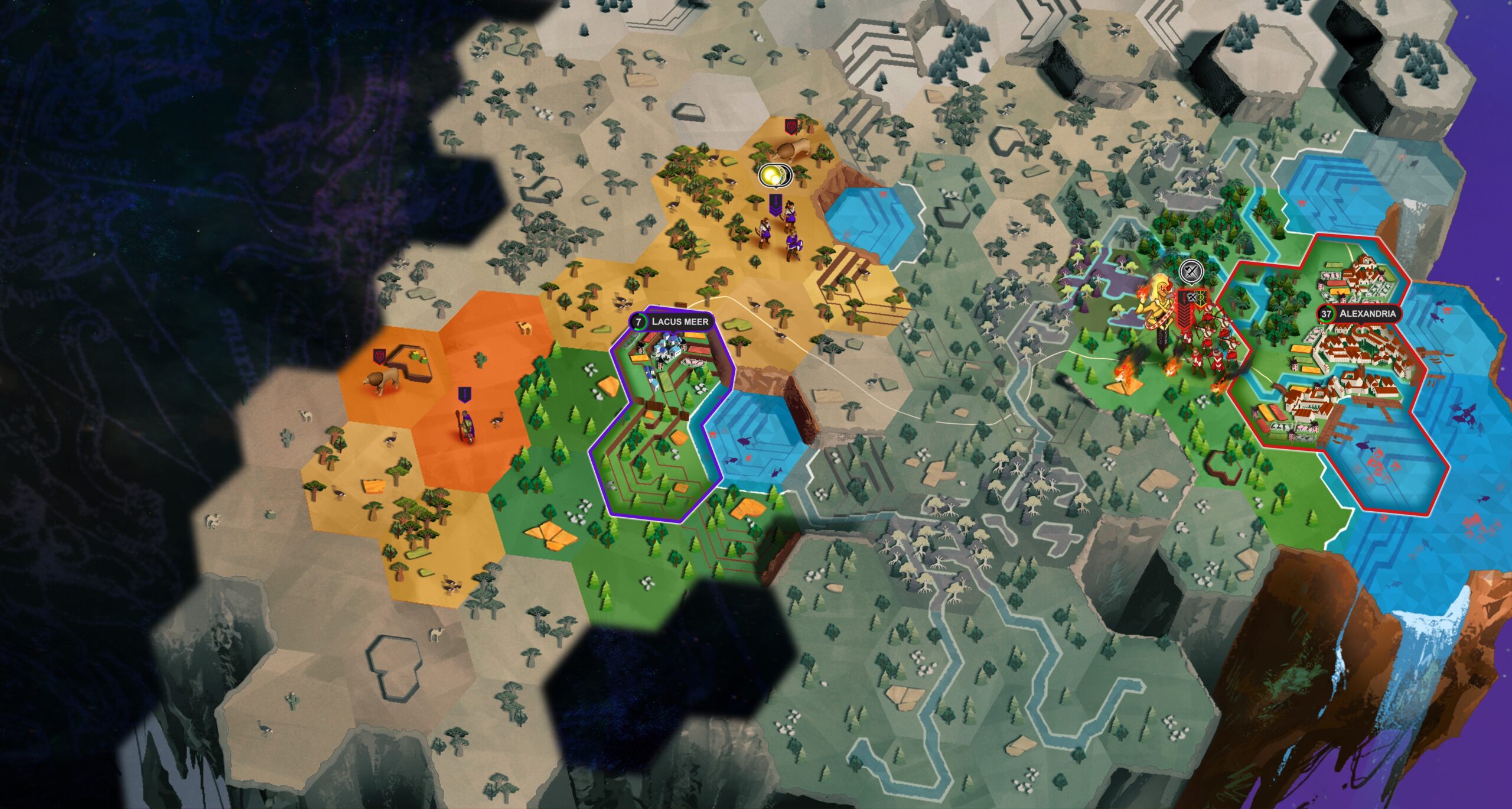If you are here, it probably is because you somehow found out about Almanach, an upcoming grand strategy game, and are curious about it. Who are the people behind it? What is Almanach about and why should you care about it? What is the current development stage? And when does it come out? Read on, and this first blog post will attempt to give answers to at least three of those questions ;P
Who we are
Before talking about the game, let us digress a bit to first discuss where it comes from. We, JB and Ian, the people behind the development of Almanach, are two guys based in Montreal, Canada, and we’ve been friends since our teenage years. And of course, as most teenagers, the main thing we used to do together was to play strategy games in dark basements.

From chess to board games to console to PC games, you name it, we tried every thing we could put our hands on. As we got older, the one type of game we never really seemed to get enough of were 4X strategy (eXplore, eXploit, eXpand, eXterminate, for those of you who are wondering) empire builders: Sins of a Solar Empire, Heroes Of Might and Magic, the various Civilization games, Stellaris… At some point, those games were not enough, and we turned to mods, notably through the excellent Civ 4 mod Fall From Heaven II (if you do not know it and can still stomach the Civ 4 graphics, do yourself a favor and go try it out).

And through every playthrough, we would discuss units, strategies, basically all the elements of the game, and eventually come to a realization: some specific aspect of the game needed a tweak. So we dove into the game files, and did a small change to one specific value. As it turns out, this turned out to be a pretty slippery slope. Before we knew it, we did another change. And a bigger one. And then we changed how a system worked. It didn’t take long that we were basically playing a mod of a mod of a mod.
But then we encountered limitations. Things that were hardcoded, hard or impossible to change only through modding. And we had ideas. So many more ideas. Creating new mechanics. Making turns simultaneous. Upgrading the UI.
Making our own game.
Fast forward to the spring of 2020. JB has since then developed a programming expertise through a PhD in physics, and Ian has been working as a level designer for a couple years in a local Indie video game studio. JB just finished his studies, Ian is temporarily out of work, and the pandemic is looming. The conjuncture is right, and we start the long process of developing what will become Almanach.
What is Almanach
Almanach is a turn-based 4X strategy game where players take the reins of power of a budding empire and must make it prosper throughout the years and trials. In solo or multiplayer, players must take their place and thrive in a world where humanity meets magic and fantastical creatures.
So what is our vision of a great fantasy strategy game, and what are our plans to achieve that vision? Our main design tenets revolve around three main pillars:
1-A large amount of player agency. Essentially, we want to offer many significant choices to players. Strategy games are built on the choices of players. We believe that for a game to be interesting, many choices have to be offered to a player from start to finish, and those choices need to be meaningful. For example, if every game starts out the same because a specific option is just better than the others, then the player is not really choosing anything, since most options are not interesting. Want to build a massive farming idyll with a sprawling capital smack in the middle of it? It should be a valid choice. Live life on the edge of survival while raiding your eastern neighbors? You got it. Leave the world a better place through the building of monuments and the growth of commerce? Knock yourself out. Build a sorcerous tower and ascend to godhood? We got you covered. Or even better: a happy mix and match of any and all previous options? Yes.

For a choice to be meaningful, there must be more than one logical answer. This is a delicate balance to achieve, since those two objectives can often pull design decisions in opposite directions: on the one side, offering more choices to the player means that on average, each choice is less significant, and on the other side, making choices different from each other can sometimes limit the number of significant options a player can choose from. Two of the ways we are planning to address this problem are through our second and third design pillars:
2-Tangible, lasting effects to player choice. We want to build a game in which every action has both short- and long-term effects, both within a single game and between games. You’ve read that right: we are planning subsequent playthroughs not to be independent from each other. The fantasy that Almanach wants to offer players is that of a cyclic world, where each game represents a specific Age of the world… Subsequent games might be played on a different map, but it is still the same world, merely changed by time and events.
Such systems have existed for a couple years now in other genres (roguelike video games, or legacy boardgames for example), but have to our knowledge not really been used on the grand strategy side of things up to now. We call this the Legacy system: a system in which player choices can have significant effects not only on this game, but on the next ones. So what kind of things can you expect from it? A player overexploiting horses might come to cause an extinction event, and for horses to be extremely rare (or even unavailable) in the next games. Another player might have the bright idea of opening a gate to hell, resulting in significant parts of the map to become demon-infested by the next playthrough. A third player might build a massive monument, which might then still be found on the map the next time over.
3-Dynamic victory conditions, or as we like to call them ‘Ambitions’, because calling them victory conditions could very well be a stretch. We want Almanach to be a competitive game in which rigid classical victory conditions have been removed, to be replaced by a dynamical system of Ambitions. Ambitions can be thought of as objectives, and must be chosen very early by the player from a dynamic list that depends on the context the player currently navigates. Ambitions will evolve throughout the course of a game, and a player might succeed several; some ambitions will force players to compete among each other (for example militarily), but not all of them (for example, one player’s creation of great works does not impede another player’s goal of charting the whole world). We expect such incentives to cooperation to fundamentally affect the way players can play a game in a style that has historically been quite competitive, especially if Ambitions allow for multiple winners.
Current Development
All that being said, what is the current status of the game? At the time these lines are being written, it has now been approximately three years that the project is under development, so what can we show already? While you can expect deeper dives in future blog posts on many of these subjects, here’s a quick summary of what we did do over those years:
1-Establishing the core systems of the game : map generation, turn-based game flow, unit movement, combat, economic system, gameplay data structures, etc. These systems were coded with expansion in mind, so that it will be straightforward to create further content and test it.

2-Developing an intuitive and fun to use User Interface (UI). This is less trivial than one might think, especially the fun to use part.
3-Figuring out a visual identity for the game. This visual style needs to be simultaneously easy to read, pleasing to the eye and realizable by a small team, since we likely won’t have enough manpower to achieve very high-end graphics.

4-Constructing a playable demo of the early part of the game to show to some lucky testers, and more importantly to potential investors. At the moment, we have content to fill out approximately 75 turns of gameplay, so between 30-60 mins of play time. We like to describe the current state of the demo as being a “hands-on” demo, meaning it is ready to play if one of us is sitting next to the tester to take notes and smooth out misunderstandings. We are actively working towards a cleaner experience, or “hands-off” demo, which would be playable by a wider audience.
And what does the future hold? As some of you may already know, creating a game is not a cheap endeavour! This demo has been our main objective for the past years because, as well-intentioned as we are, we are but two people. In order to transform this project into the full-fledged game that we want to build, we will need a larger team: to make it interesting, to make the strategy rich and deep, and to make it pretty. And for that, we will need external funding. So as we bring the finishing touches to the demo, we also start looking into ways of getting some of that money.
Whether it ends up being with a publisher, private investor, government subsidies or a crowdfunding campaign, however, you can help us by following this blog and joining our discord channel. After all, it is a lot easier to for us to sell a game to investors if they can see an active community already following the development!
The discord server should receive approximately weekly updates, and we will occasionally post deeper dives on this blog on selected topics. This brings this first (very) long post to an end; we hope you enjoyed it and look forward to hearing from you!
